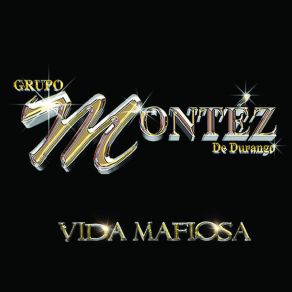Vida Mafiosa
Download links and information about Vida Mafiosa by Grupo Montez De Durango. This album was released in 2008 and it belongs to Latin genres. It contains 11 tracks with total duration of 29:31 minutes.

|
|
|---|---|
| Artist: | Grupo Montez De Durango |
| Release date: | 2008 |
| Genre: | Latin |
| Tracks: | 11 |
| Duration: | 29:31 |
| Buy it NOW at: | |
| Buy on iTunes $9.99 | |
| Buy on Amazon $9.49 | |
Tracks
[Edit]| No. | Title | Length |
|---|---|---|
| 1. | El Federal de Zacatecas | 2:42 |
| 2. | De Durango Hasta Chicago | 2:52 |
| 3. | Dos Gallos de Oro | 2:48 |
| 4. | El Cajoncito | 3:15 |
| 5. | El General | 2:25 |
| 6. | Está de Parranda el Jefe | 2:53 |
| 7. | La Hummer de Culiacán | 2:11 |
| 8. | La Imagen de Malverde | 3:08 |
| 9. | Mi Ultimo Contrabando | 3:23 |
| 10. | Pascual Sarmiento | 1:56 |
| 11. | Vida Mafiosa | 1:58 |
Details
[Edit]Regional Mexican music has evolved considerably over the years, but thankfully, corridos (Mexican folk ballads) have never gone out of style; the first corridos were written in the 19th century, and corridos were as popular as ever in the late 2000s. There was a time when corridos were dominated by mariachi bands, but these days, corridos are just as likely to be performed by norteño, banda, or tierra caliente acts. And Grupo Montéz de Durango's Vida Mafiosa (Mafia Life) is an album of corridos performed by a leading duranguense outfit. There is some banda influence on this 2008 release; Montéz's extensive use of trombone adds some banda-ish brassiness to the equation. Nonetheless, duranguense is the main ingredient on Vida Mafiosa, which doesn't offer narcocorridos exclusively but has its share of them. Narcocorridos (corridos about drug smuggling) have been as controversial in regional Mexican music as gangsta rap is in hip-hop, but outlaw themes were plentiful in corridos long before Los Tigres del Norte and others started recording narcocorridos — and there are certainly parallels between outlaw country and the outlaw imagery that is prominent on Vida Mafiosa. Think of outlaw country classics like Merle Haggard's "Mama Tried," Marty Robbins' "Big Iron," and Johnny Cash's "Folsom Prison Blues"; a similar narrative style prevails on "El Último Contrabando" (The Final Contraband), "De Durango Hasta Chicago" (From Durango to Chicago), and other corridos that Grupo Montéz perform on this 29-minute CD. In duranguense circles, there has been much discussion of the lineup changes that have taken place in Grupo Montéz; several of the group's ex-members (including former lead singer Alfredo Ramírez Corral) became a part of Los Creadorez del Pasito Duranguense de Alfredo Ramírez in the 2000s. But Vida Mafiosa is a fine example of what Grupo Montéz have to offer in a post-Ramírez incarnation, and it is a rewarding, if brief, demonstration of how attractive a combination of corridos and duranguense can be.